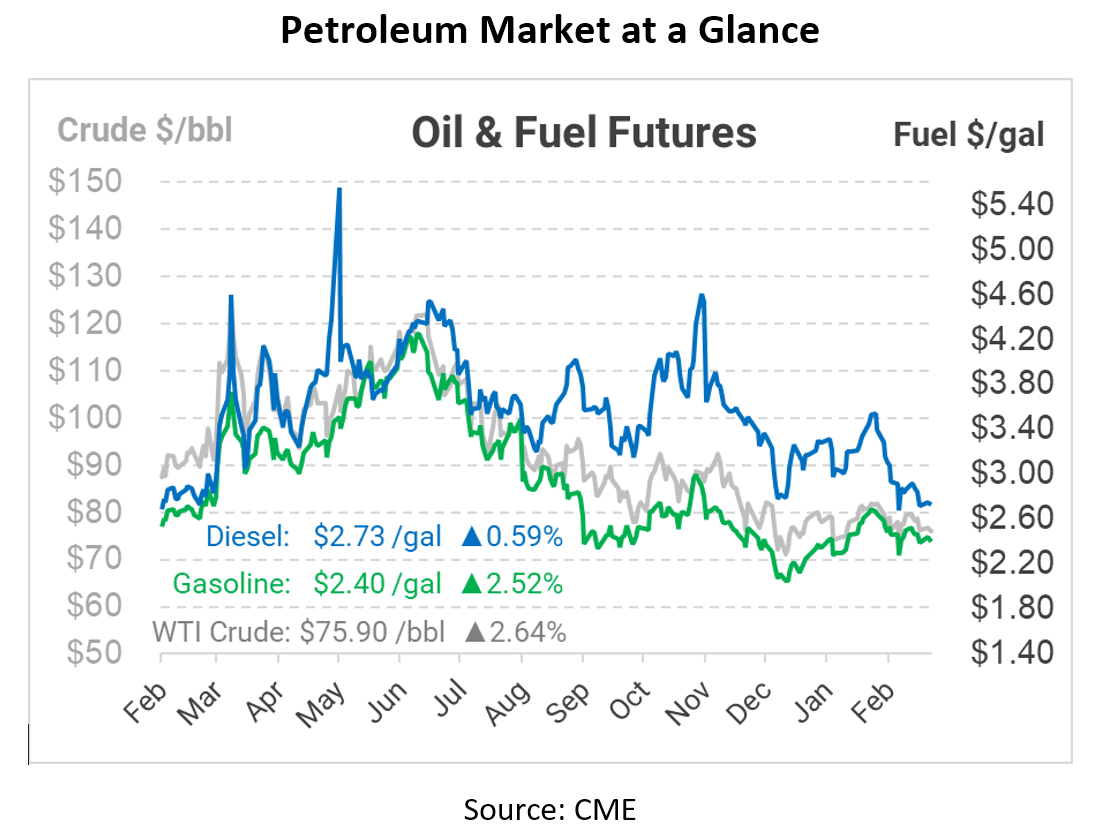
Pick a Card, (Not Just) Any Card: Retail Cards, OTR, or Cardlock Fueling
If you manage a fleet of vehicles, you’ve probably heard of fleet card fueling. But, if you’re not familiar with those types of cards, you must be wondering what their benefits are.
First, you can think of a fleet card as your standard credit card, but with more benefits. Fleet cards can be customized according to the fleet’s needs or to what they’re trying to accomplish. They can capture data – such as miles per gallon, driver’s ID, vehicle information, and types of fuel, making fuel management much more manageable. They can also help companies save on gas, as they can offer discounts on fuel. The three most common types of fleet cards are Universal Retail Cards, OTR Cards, and Cardlocks.
What’s the best option?
It will depend on the size and type of your fleet, as well as your fueling needs.
Retail Fuel Cards
When it comes to retail fuel cards, you will probably think of the credit card you use in regular stores, and you are right. Consumers can use these cards to fill up their motorcycles, passenger cars, and vans. They are accepted at the pumps in any regular gas station. Most retail cards offer wide acceptance across the US and potentially Canada also. For instance, Mansfield offers different styles of cards with 95% acceptance across the US.
These cards are best geared towards companies with smaller vehicles, up to a Class Six vehicle. For heavy equipment, other cards or bulk fueling may be more common. Among the ideal customers for a universal card are utilities, auditors, some construction sites, parcel carriers, delivery, small bus fleets, and more.
Over the Road Cards
Over the Road cards – or simply OTR cards – are commercial cards for fleet hauling over long distances and fueling on the road. OTR stations, also known as truck stops and fuel depots, provide drivers with high-speed diesel. They are not open to the general public.
Scott McCaskill, Fleet Card Services Director at Mansfield Energy, explains the OTRs pumps are in the back of the gas station. “You cannot take a tractor-trailer and put it on the front part of the station. You cannot take a car or van and put it on the back. The nozzles just don’t fit those types of applications.”
An OTR typically offers better savings than a retail card, since heavy-duty trucks are consuming higher volumes of fuel. They may also bring perks for drivers, such as higher points. With an OTR card, you can also negotiate special pricing with nearby truck stops by promising more volume, which can lead to steep discounts or even cost-plus style pricing.
Cardlock Cards
Cardlock Fueling stations are also different from regular gas stations. They are unstaffed locations with 18-wheel access that are specifically made for businesses. Unlike retail, most cardlocks don’t have convenience stores and aren’t open to the general public.
Cardlocks usually offer the lowest price, with rates based on rack pricing rather than retail rates. However, they also have the most limitation. There are different cardlock networks across the US, but they’re not interchangeable, so you can only fuel at stations with the same brand as your card. Usually, cardlock stations work best for companies that have local and regional routes, where drivers know the route well enough to find the cardlock site and don’t need amenities such as a shower or overnight parking.
Why should your company have a fleet card program?
If you are looking for a solution to consolidate your fleet data and have more visibility into fleet spend, mileage, and asset utilization, as well as billing control and invoices, then you should consider a fleet card.
Without the right tool, many owners struggle to keep up with all the fuel receipts from dozens of places and the impossibility of tracking mileage data odometers because they are not combined. Not to mention drivers getting stuck without cash to fuel or managers that do not know who is buying fuel and where.
According to McCaskill, many companies, especially with a fleet under 100 vehicles, should get a summary page with all their fueling expenses. “They don’t know where their vehicles are fueling and why.”
Fraud control is another important element to consider, as McCaskill explains: “Fleet cards allow companies to set limits for IDs, number of swipes, number of gallons, the types of transactions, and offer the fuel-only option, which means that drivers will not be able to spend money on things other than gas or fuel additives.”
Whether your drivers fuel from backyard storage tanks, at retail locations, or via mobile refueling, it’s critical that they have convenient ways to purchase the fuel they need, and it’s equally essential that you have comprehensive management visibility to track and optimize transactions.
When it comes to fleets with 25 to 50,000 vehicles, Mansfield partners with leading fleet card networks to design the optimal card solution for your specific needs. Mansfield Fleet card Program offers customized card limits, nationwide acceptance, fuel program consolidation, 24/7 customer service, benchmark analysis, and insights across all fuel modes.
Mansfield Fleet Cards are accepted at over 230,000 retail and private fueling sites, cardlocks, backyard tanks, and mobile fueling locations.
Contact us today to learn more about our Fleet Card Solution.
This article is part of Daily Market News & Insights
MARKET CONDITION REPORT - DISCLAIMER
The information contained herein is derived from sources believed to be reliable; however, this information is not guaranteed as to its accuracy or completeness. Furthermore, no responsibility is assumed for use of this material and no express or implied warranties or guarantees are made. This material and any view or comment expressed herein are provided for informational purposes only and should not be construed in any way as an inducement or recommendation to buy or sell products, commodity futures or options contracts.






